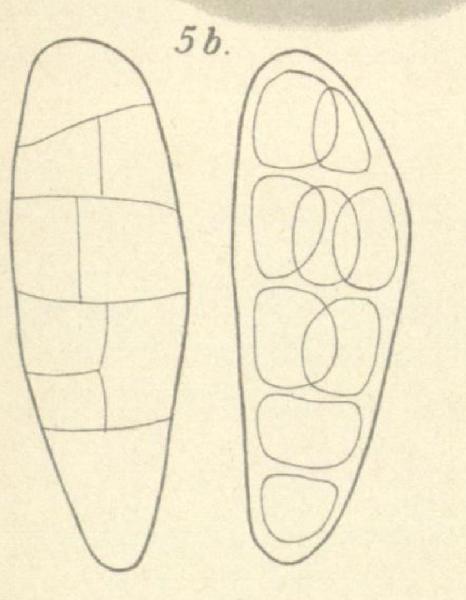Polyblastia verrucosa (Ach.) Lönnr.
Flora, 41: 631, 1848. Basionym: Pyrenula verrucosa Ach. - Lichenogr. Univ.: 314, 1810.
Synonyms:
Distribution: N - Frl (TSB 16888), Ven (Nascimbene & Marini 2007), TAA (Nascimbene 2003), Piem (Isocrono & al. 2004), VA (Piervittori & Isocrono 1999). C - Abr (Nimis & Tretiach 1999, Gheza & al. 2021).
Description: Thallus episubstratic, thin and inconspicuous to rather thick, uneven and cracked, pale grey to pale brownish grey. Perithecia black, forming 0.4-0.7 mm wide projections, up to half immersed in the thicker thalli, with a slightly flattened to depressed apical part. Involucrellum well-developed, limited to the upper part of perithecium, thicker around the ostiole, diverging from exciple in lower part; exciple dark throughout; hamathecium of periphyses and periphysoids, interascal filaments absent; hymenial gel hemiamyloid, I+ red (I+ blue at very low concentrations of I), K/I+ blue. Asci 8-spored, clavate, K/I-, fissitunicate, the wall thickened above, with a broad ocular chamber, dehiscent by extrusion of an endotunica to form a delicate rostrum. Ascospores submuriform, with (3-)4-5(-6) transverse and 1-2(-3) longitudinal septa (with c. 6-10 cells in optical view), hyaline, ellipsoid, (30-)35-55(-60) x 14-23(-25) μm. Photobiont chlorococcoid. Spot tests: K-, C-, KC-, P-, UV-. Chemistry: without lichen substances.Note: on steeply inclined, sheltered surfaces of calcareous rocks above treeline, reaching the nival belt in the Alps; widespread in the calcareous Alps, much rarer and localised in the Apennines.
Growth form: Crustose
Substrata: rocks
Photobiont: green algae other than Trentepohlia
Reproductive strategy: mainly sexual
Commonnes-rarity: (info)
Alpine belt: rather rare
Subalpine belt: absent
Oromediterranean belt: absent
Montane belt: absent
Submediterranean belt: absent
Padanian area: absent
Humid submediterranean belt: absent
Humid mediterranean belt: absent
Dry mediterranean belt: absent
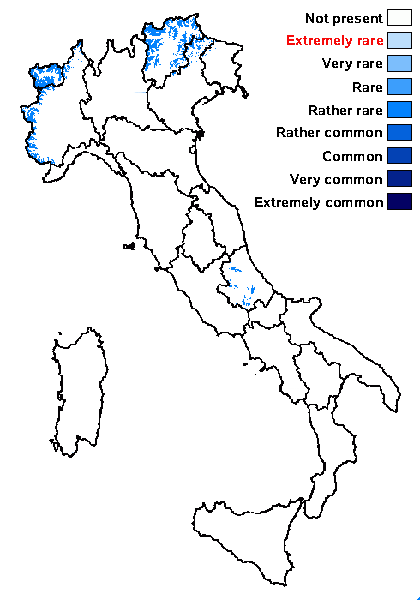
Predictive model
Herbarium samples
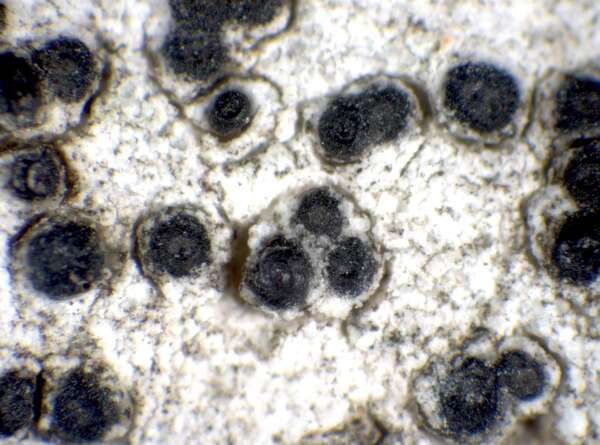

P.L. Nimis; Owner: Department of Life Sciences, University of Trieste
Herbarium: TSB (25191)
2001/11/29
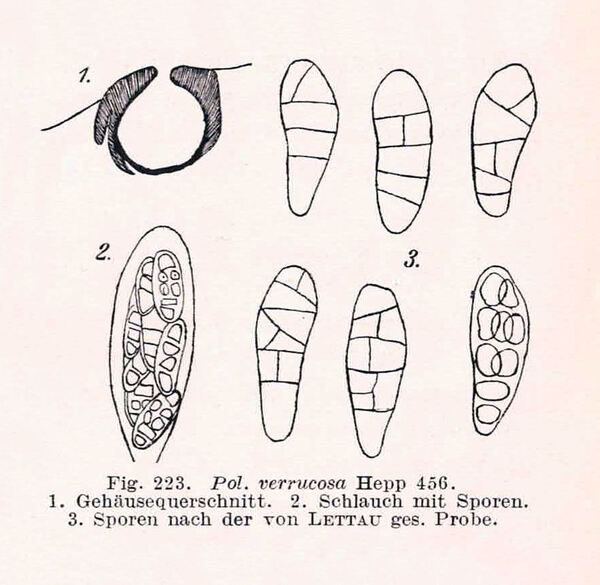
Source: Zschacke, H. (1934) Epigloeaceae, Verrucariaceae und Dermatocarpaceae. In: Dr. L. Rabenhorst‘s Kryptogamen-Flora, Band 9, Abt. 1, Teil 1. Akademische Verlagsgesellschaft, Leipzig, 695 pp. - Public Domain
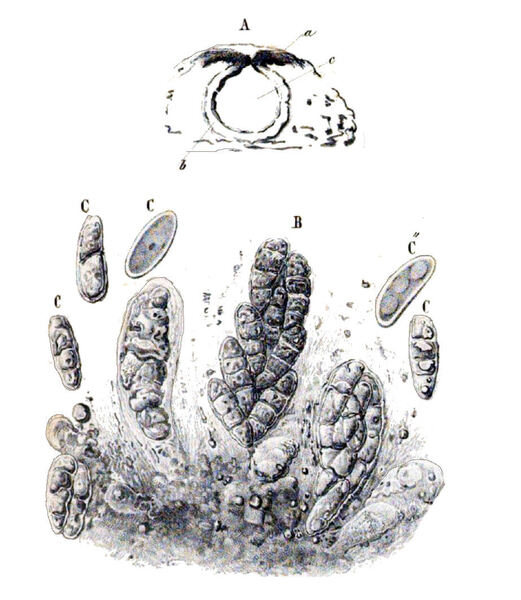
G. Gibelli, in S. Garovaglio, 1865 Tentamen Dispositionis Methodicae Lichenum In Longobardia Nascentium. Mediolanum
as Verrucaria pseudodufourei var. verrucosa (Ach.) Garov.
Growth form: Crustose
Substrata: rocks
Photobiont: green algae other than Trentepohlia
Reproductive strategy: mainly sexual
Commonnes-rarity: (info)
Alpine belt: rather rare
Subalpine belt: absent
Oromediterranean belt: absent
Montane belt: absent
Submediterranean belt: absent
Padanian area: absent
Humid submediterranean belt: absent
Humid mediterranean belt: absent
Dry mediterranean belt: absent

Predictive model
| Herbarium samples |


P.L. Nimis; Owner: Department of Life Sciences, University of Trieste
Herbarium: TSB (25191)
2001/11/29

Source: Zschacke, H. (1934) Epigloeaceae, Verrucariaceae und Dermatocarpaceae. In: Dr. L. Rabenhorst‘s Kryptogamen-Flora, Band 9, Abt. 1, Teil 1. Akademische Verlagsgesellschaft, Leipzig, 695 pp. - Public Domain

 INDEX FUNGORUM
INDEX FUNGORUM
 GBIF
GBIF
 DOLICHENS
DOLICHENS

